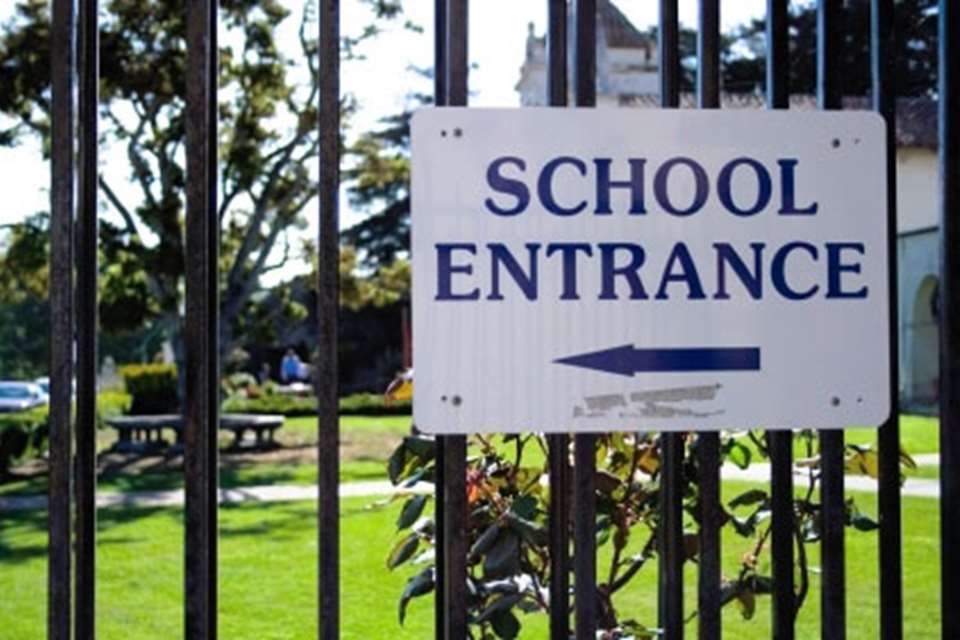Council budgets plugging a £1bn 'black hole' in school place funding
Wednesday, August 27, 2014
Councils are using money earmarked for other projects to fund a £1bn shortfall in Government funding for new school places, a survey shows.

New research by the Local Government Association (LGA) reveals that councils have abandoned building projects, cut back on school maintenance and borrowed money to pay for extra school places in their area.
The Association conducted an online survey of chief finance officers in the 150 English councils with LGA membership.
When asked if funding provided by the Department for Education had met the full cost of providing school places between 2011/12 and 2016/17, more than three-quarters of councils said it had not been enough.
The total amount of money survey respondents reported they were short by was £1,062,086,377. The total shortfall across England is likely to be higher, says the LGA.
In December, the Government committed £2.35 billion to provide places up to 2017. Government figures estimate the cost of providing a single place is £15,430.
To make up for the shortfall in funding, 38 per cent of these councils have borrowed money, 67 per cent have used money from developers, 22 per cent have taken money from other building programmes, and 50 per cent used cash from other school capital programmes, such as school building maintenance.
A breakdown of the figures show that London boroughs have had to stump up the most money to plug a gap in Government funding.
The London Borough of Ealing has added £129 million to its Government funding for school places, while the London Borough of Hillingdon has added £114 million.
Changing demographics and a rise in the birth rate have led to increased pressures on school places, particularly in London and the Southeast.
Last year, councils created an additional 90,000 primary places, however analysis by the Association in March revealed a further 130,000 would still be needed by 2017/18.
According to the LGA, councils have gone to ‘extraordinary’ lengths to ensure there is a place for every child by adding extra classes, using temporary buildings, and in one case even putting a playground on a roof.
Councils are now calling for the Government to fully fund this national ‘black hole’, while the LGA wants local authorities to be given a single capital ‘pot’ with an indicative five-year allocation to enable them to plan creating school places effectively.
The Association is also calling for the Government to hand back powers to local authorities to create new schools and be given a greater role in judging and approving free school proposals.
Councillor David Simmonds, chairman of the LGA’s children and young people’s board, said, ‘Parents expect their child to be able to get a place at a good local school and this research shows councils are delivering, but at a cost.
‘The scale of this black hole is such that the cost of the creation of new school places cannot be met by council taxpayers.
‘Councils face a challenge to create places on time and in the right areas, in a climate where they are also short of money to do so. Additionally, much of the decision-making about new school places rests in the hands of the Government, whose funding for school places came too late. As a consequence, councils are carrying a billion pounds worth of costs, which has come from other areas.
‘The Government should budget for enough money to ensure something as vitally important as providing school places is not funded from other areas. This is an investment in the future which will benefit us all.’
A Department for Education spokesperson said, ‘We are making every effort to stop an unprecedented increase in pupil numbers affecting class sizes, and councils have a legal duty to provide school places for children in their area. That is why, through our education plan, we are giving councils £5bn to spend on new school places over this parliament - double the amount allocated by the previous Government over an equivalent period — already leading to the creation of 260,000 new places in shortage areas.
‘We have also confirmed a further £2.35bn to support councils to create the places needed by September 2017. And there are plenty more school places in the pipeline, with councils planning to create at least 300,000 extra primary places by next year.
‘In addition we are allowing good schools to expand without the restrictions and bureaucracy they faced in the past. And there are now more than 320 free schools open or in the pipeline which will provide a further 175,000 places - the vast majority of which are in areas of need.’
Commenting on the report, Christine Blower, general secretary at the National Union of Teachers (NUT), said, ‘The LGA is highlighting a problem which has been well known for some time yet has remained unaddressed. Education is a fundamental right for children and young people in this country. It is unacceptable that for some that will mean class sizes of 40, 50, 60 or even 70, and cuts to much needed facilities.
‘Government needs to realise that urgent measures need to be taken. The free schools programme does not address the problem. It allows for schools to be set up in areas where there is not the need for additional places at tax payers’ expense. It is contributing to the problem not solving it.
‘Parents and the general public will be genuinely dismayed by the current situation. We need to see a return to coherently planned school provision overseen by the local authority, and there needs to be the funding in place to ensure it happens. Failure to do so will leave this Government responsible for a school place crisis, the effects of which will be far reaching and seriously detrimental to education provision in this country.’






